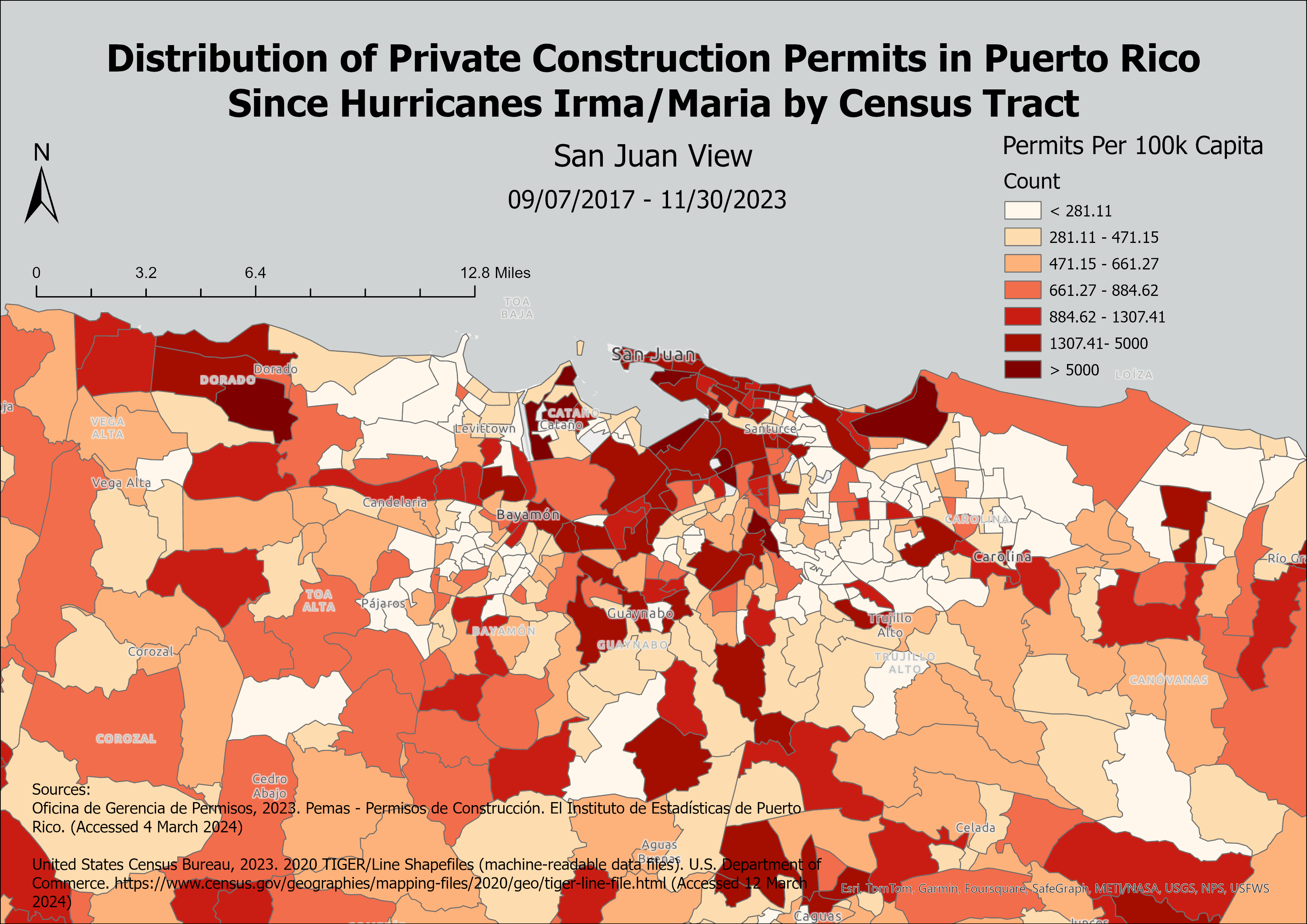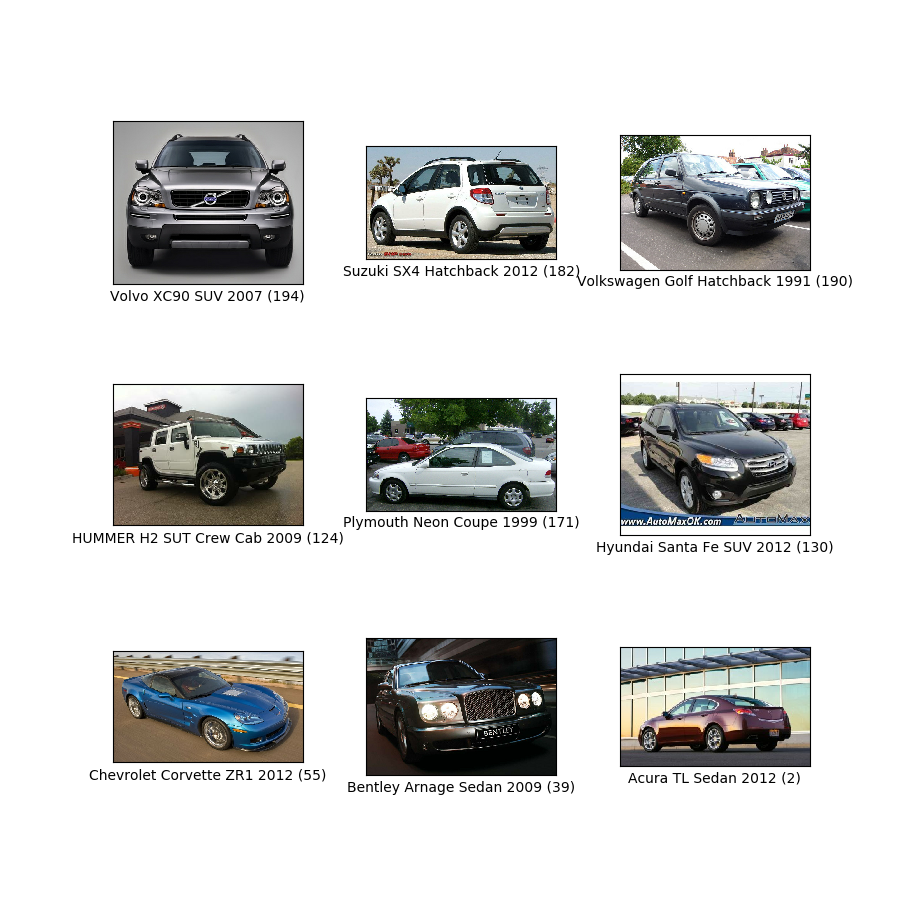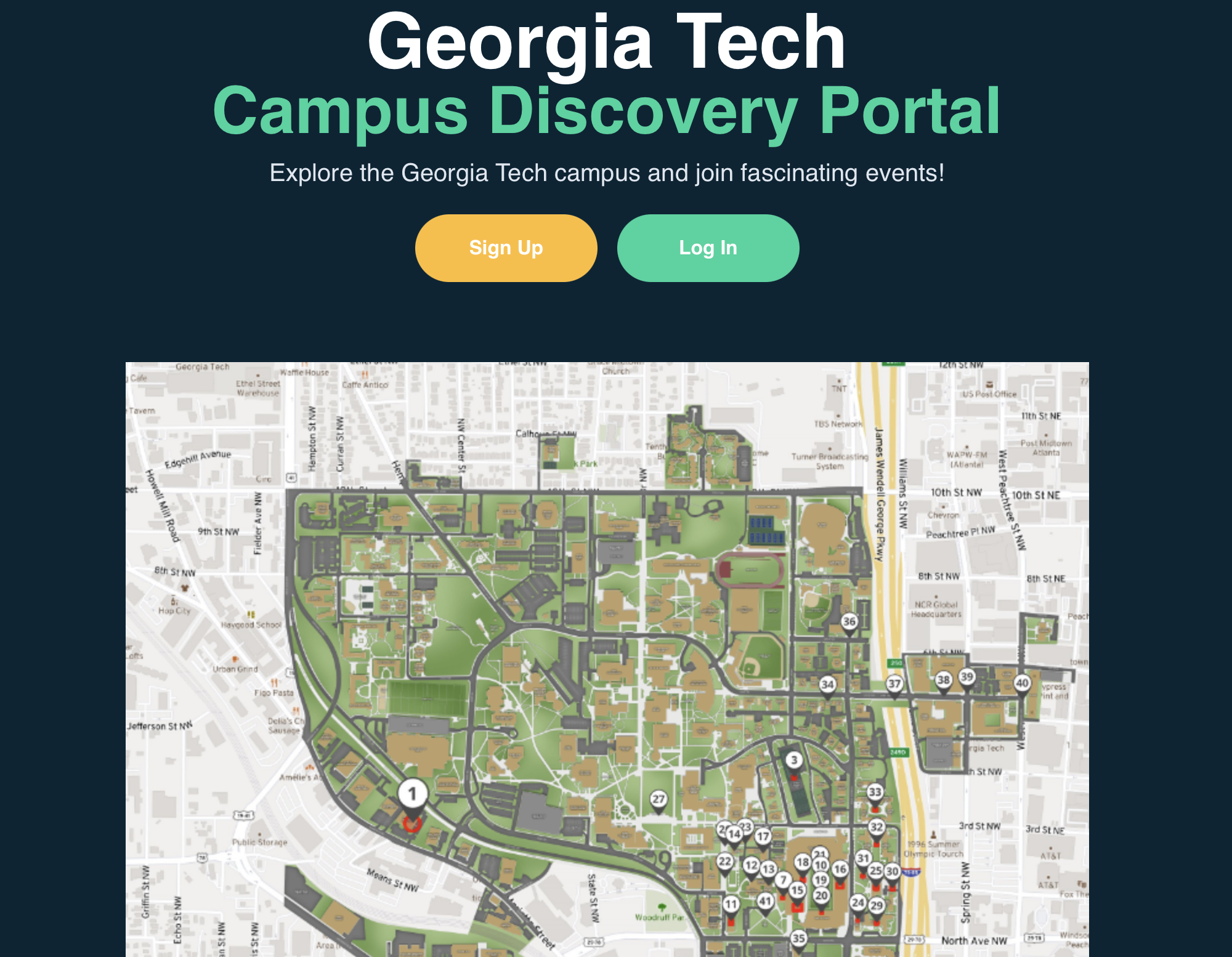
Puerto Rico Planning Studio
Technologies: GIS, R, Data Analysis/Visualization
Participated in the 2024 Puerto Rico Planning Studio led by Dr. Alberto Fuentes, conducting
post-disaster reconstruction research with the Center for a New Economy and completing fieldwork
during a week-long trip to San Juan.
Researched post-disaster reconstruction in Puerto Rico following Hurricanes Irma, Maria, and Fiona
(see "Private Reconstruction" section on the poster below). My
contributions included using R and GIS tools to analyze and visualize trends in construction permits
over time. To fully understand the permitting process, we interviewed organizations including the
Puerto Rico Permits Management Office (OGPe), Planning Board, and Builders Association (ACPR).
Highlights included traveling to San Juan, Puerto Rico during spring break to conduct fieldwork and
presenting at the 2024 Georgia Tech Sustainability Showcase (see left)!


